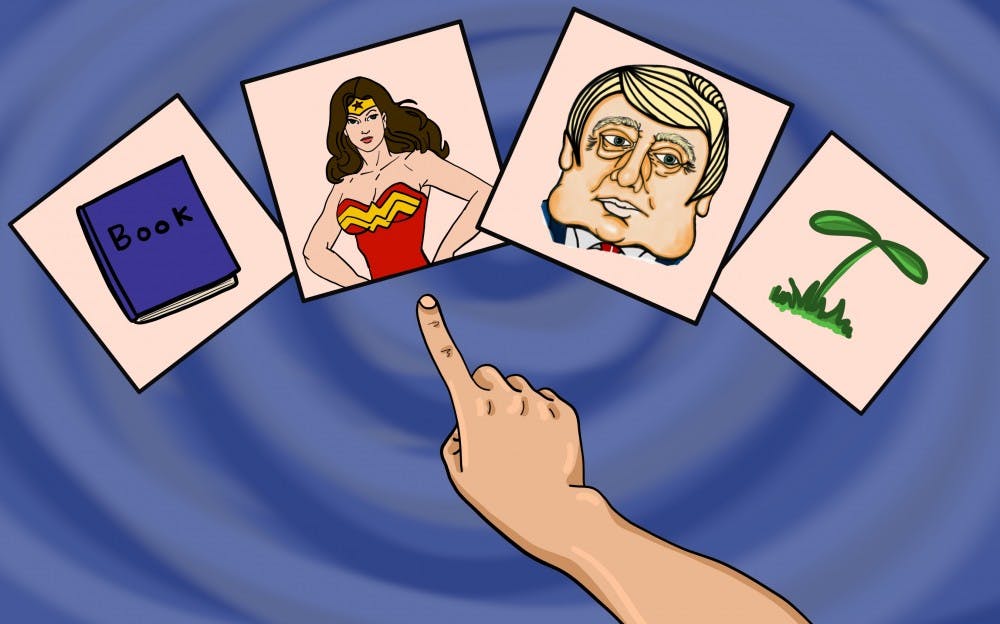The Department of English is offering a variety of new courses for the upcoming spring semester.
Focuses of the new courses range from learning how to identify fake news and propaganda, to how the humanities have the potential to save the planet.
Professor of rhetoric, Maureen Daly Goggin, will be instructing the ENG 494 class, Analyzing Rhetoric: Fake News & Alternative Facts.
Goggin said that she believes that this course is especially relevant right now due to the current political climate.
“What is fake news, and how do we get bombarded by it? That’s one of the central questions," Goggin said. "(The class) is really about helping students learn how to detect false from truth.”
According to Goggin, the class will help students develop a critical eye and to look at any given issue with a broad range of perspectives.
"It's not just left and it's not just right," Goggin said. "(The class) will help any student in any career, whether you’re a biology or political science major, this will be a critical skill for you to have."
Assistant Professor of English, Melissa Free, will be instructing ENG 461, Female Action Hero.
Free said that the course will cover, “everything from a late nineteenth-century Robinsonade to contemporary visual sequential narratives,” and will be structured with a mixture of lecture and lively discussion.
“(I hope that students recognize) that female empowerment takes many forms across many years in many genres and localities,” Free said. “And (develop) an excitement about research and critical engagement that will extend beyond this class, and honestly, joy. It’s a fun class that covers a lot.”
Free said that students from STEM majors could also benefit from taking this course, and that in previous semesters, those students have contributed in exciting ways.
“Everyone brings something to the table, perhaps a passion for young adult literature or superheroes, or excitement about narratives that empower women,” she said. “When students have those passions and interests, they are already close readers and critical thinkers, I try to help them develop those skills, as well as to encourage them to apply them across a range of literary, media and social texts, beyond this or any classroom.”
Associate professor of English, Sally Ball, will be instructing ENG 494, Genre Fusions: Invention & Robbery in the New Poetic Prose.
According to Ball, throughout the course, students will be looking at texts that cover multiple subject matters, ranging from illnesses to murder and race.
"These writers that I'm looking at are people who are aware of this bias against arts that exist in the culture," Ball said. "This is about your world, and it's presented to you in ways that are very tangible and real."
Ball said that right now we live in a world where efficiency is prioritized, and art is viewed as something extra when it shouldn't be, since it is a necessary part of living "a full life."
"The goal of the course is to see how deeply effective words and gestures can be," Ball said. "And then figure out how to bring them out in any kind of writing or thinking, whether that's as artists or otherwise."
Ball encourages students from all backgrounds and majors to take this course, as she believes this will facilitate more complete discussions and understandings in class.
"The more backgrounds we have in class, the more interesting our conversations will be," Ball said. "And the more we will understand this awareness about how sometimes, the things that we think are good for us are actually limiting."
Mark Lussier, a professor of English and senior sustainability scholar, will be instructing ENG 367: Environmental Issues in Literature & Film: Classic Texts & Contemporary Trends, along with guest lecturer, Sir Jonathan Bate, the Provost of Worcester College and professor of English at University of Oxford.
"Having Johnathan here is a special thing," Lussier said. "Whatever he lectures on will be compelling and interesting."
According to Lussier, the course will primarily be structured as a combination of lecture and dialogue.
"We will certainly be stimulating as much conversation with students as humanly possibly," Lussier said. "This is the type of knowledge that they can take out in the world, and in a sense, save us all."
Lussier said that although the course is listed through the English department, the instructors don't care what majors perspective students are coming from.
"We hope that people far and wide would be interested in this, and I think that there's a good reason to have that expectation," he said. "We’re happy and excited about what we’re doing here."
Reach the reporter at adunn11@asu.edu or follow @adrienne_dunn on Twitter.
Like The State Press on Facebook and follow @statepress on Twitter.




